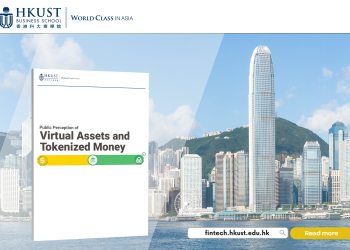News & Stories
2025
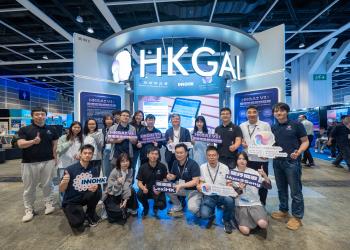
News
HKGAI Showcases New AI Research Achievements at InnoEX 2025
The Hong Kong Generative AI R&D Center (HKGAI), a joint-university collaborative venture, led by the Hong Kong University of Science and Technology (HKUST) with multiple universities, demonstrated how AI can be effectively integrated into the daily lives of citizens under the theme "AI Buddy for Hong Kong Citizens" at the InnoEX 2025.
With funding from the HKSAR government’s InnoHK initiative, HKGAI has further expanded its inventions for more practical applications since last year’s exhibition. Following the launch of HKGAI V1, the latest locally developed large model launched early this year, a series of new self-developed AI research projects based on the HKGAI V1 large model were debut at InnoEX 2025, including:
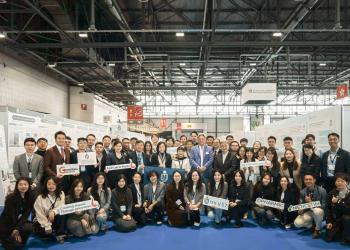
News
HKUST Achieves Record-Breaking Results at 50th International Exhibition of Inventions Geneva
The Hong Kong University of Science and Technology (HKUST) achieved a record-breaking success at the 50th International Exhibition of Inventions Geneva concluding today. Thirty-seven HKUST teams won a total of 38 awards, including two special grand prizes, 22 Gold Medals (of which seven received Congratulations of the Jury), and multiple Silver and Bronze Medals, showcasing the University’s outstanding performance across different fields including life and health technologies, artificial intelligence (AI) and data science, advanced manufacturing, new energy technologies and aerospace engineering. HKUST outshone other local universities and smashed its own record with this extraordinary haul of awards, reaffirming its status as a powerhouse of creativity and invention.
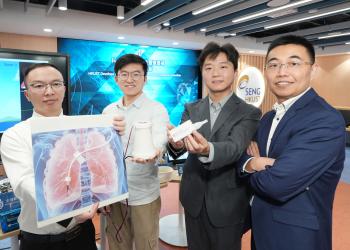
News
HKUST Develops Multiple Smart Devices to Advance Medical Innovation
A research team at the Hong Kong University of Science and Technology (HKUST) has developed three innovative smart medical devices for health monitoring, surgical assistance and rehabilitation. Integrating artificial intelligence (AI) with robotics technology, the devices seek to help doctors address challenges in treatment and diagnostics, improve medical procedures and enhance efficiency. Led by Associate Prof. SHEN Yajing from the Department of Electronic and Computer Engineering, the team is actively collaborating with public and private institutions, industry stakeholders and investors to promote the translation and clinical application of the three breakthroughs below.
AI Hand-Centric Tactile Interaction System (PhyTac):
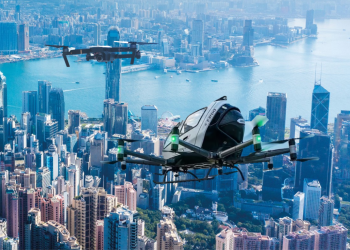
Stories
The Sky’s Not the Limit, It’s a Whole New World
Imagine a hiker collapsing from heatstroke on a remote trail in Sai Kung. In the past, help could take an agonizing hour, but now, thanks to a groundbreaking drone delivery system being pioneered in Hong Kong, life-saving medical supplies can arrive in just minutes. This isn’t just a vision of the future; it’s a reality unfolding before our eyes.
Cities worldwide are embracing drones, unmanned aerial vehicles (UAVs), and advanced air mobility (AAM) systems to enhance urban mobility, logistics, emergency response, and even entertainment, such as stunning drone shows. In Mainland China, the low-altitude economy (LAE) is projected to reach a staggering 2 trillion yuan by 2030, signalling a transformative shift in everyday life.
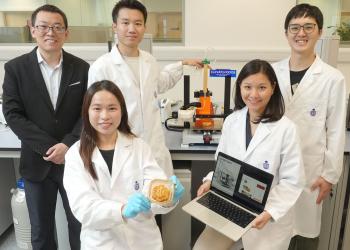
News
HKUST Researchers Set to Transform Food Production with AI-enhanced 3D Food Printing Solution
Researchers at the Hong Kong University of Science and Technology (HKUST) have developed a cutting-edge AI-assisted 3D food printing solution that combines printing with infrared cooking, paving the way for safer, more efficient, and visually appealing food production.
Traditional 3D food printing methods often require additional postprocessing steps, which can have unappealing food ingredients, imperfect shapes, and even potential microbial contamination.
To address these challenges, the team from the Division of Integrative Systems and Design (ISD) at HKUST has developed an AI-enhanced system that combines extrusion-based printing with simultaneous infrared heating for on-the-fly cooking of intricate starch-based foods. Using graphene heaters for cooking, they precisely controlled the cooking process, ensuring that starch-based food items retain their intended shape and quality.
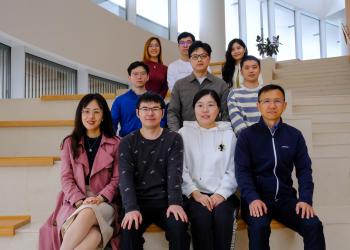
News
HKUST Life Science Researchers Establish an Intracranial Optic Tract Injury Model to Reveal Mechanisms of Functional Circuit Reconstruction Following CNS Injury
A research team led by Prof. LIU Kai from the Division of Life Science and Department of Chemical and Biological Engineering at the Hong Kong University of Science and Technology (HKUST) has established an innovative intracranial pre-olivary pretectal nucleus (OPN) optic tract injury model (pre-OPN OTI), shedding light on crucial mechanisms of functional axonal rewiring following central nervous system injury.
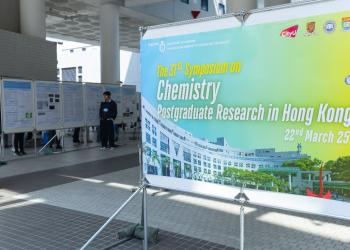
News
HKUST Hosts The 31st Symposium on Chemistry Postgraduate Research in Hong Kong
The Department of Chemistry at the Hong Kong University of Science and Technology (HKUST), hosted the 31st Symposium on Chemistry Postgraduate Research in Hong Kong on March 22, 2025, at its Clear Water Bay campus. Since its inception in 1994, the symposium has been a flagship annual event, bringing together postgraduate students, faculty members from all UGC-funded institutions, and industry partners to showcase cutting-edge chemistry research and foster academic and professional collaborations.









